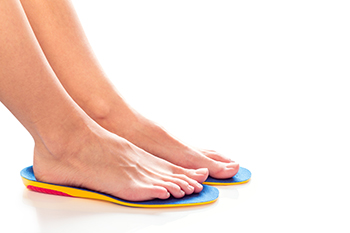6650 Frankford Ave
Philadelphia, PA 19135

Shoe orthotics are an important non-surgical treatment for hallux rigidus, a condition marked by a stiff, painful big toe joint. Before considering surgery, it is wise to explore orthotic options, as they can significantly alleviate symptoms and improve mobility. Custom-made orthotics help by redistributing pressure away from the affected joint, providing better arch support, and reducing pain during movement. They work by cushioning the foot and correcting abnormal gait patterns that worsen the condition. If you have a painful and stiff big toe, it is suggested that you consult a podiatrist to ensure that the orthotics are tailored to your specific needs.
If you are having discomfort in your feet and would like to try orthotics, contact John M. Fanelly, DPM from Northeast Philadelphia. Our doctor can provide the care you need to keep you pain-free and on your feet.
What Are Orthotics?
Orthotics are inserts you can place into your shoes to help with a variety of foot problems such as flat feet or foot pain. Orthotics provide relief and comfort for minor foot and heel pain but can’t correct serious biomechanical problems in your feet.
Over-the-Counter Inserts
Orthotics come in a wide variety of over-the-counter inserts that are used to treat foot pain, heel pain, and minor problems. For example, arch supports can be inserted into your shoes to help correct overarched or flat feet, while gel insoles are often used because they provide comfort and relief from foot and heel pain by alleviating pressure.
Prescription Orthotics
If over-the-counter inserts don’t work for you or if you have a more severe foot concern, it is possible to have your podiatrist prescribe custom orthotics. These high-quality inserts are designed to treat problems such as abnormal motion, plantar fasciitis, and severe forms of heel pain. They can even be used to help patients suffering from diabetes by treating foot ulcers and painful calluses and are usually molded to your feet individually, which allows them to provide full support and comfort.
If you are experiencing minor to severe foot or heel pain, it’s recommended to speak with your podiatrist about the possibilities of using orthotics. A podiatrist can determine which type of orthotic is right for you and allow you to take the first steps towards being pain-free.
If you have any questions please contact our office located in Philadelphia, PA . We offer the newest diagnostic and treatment technologies for all your foot and ankle needs.